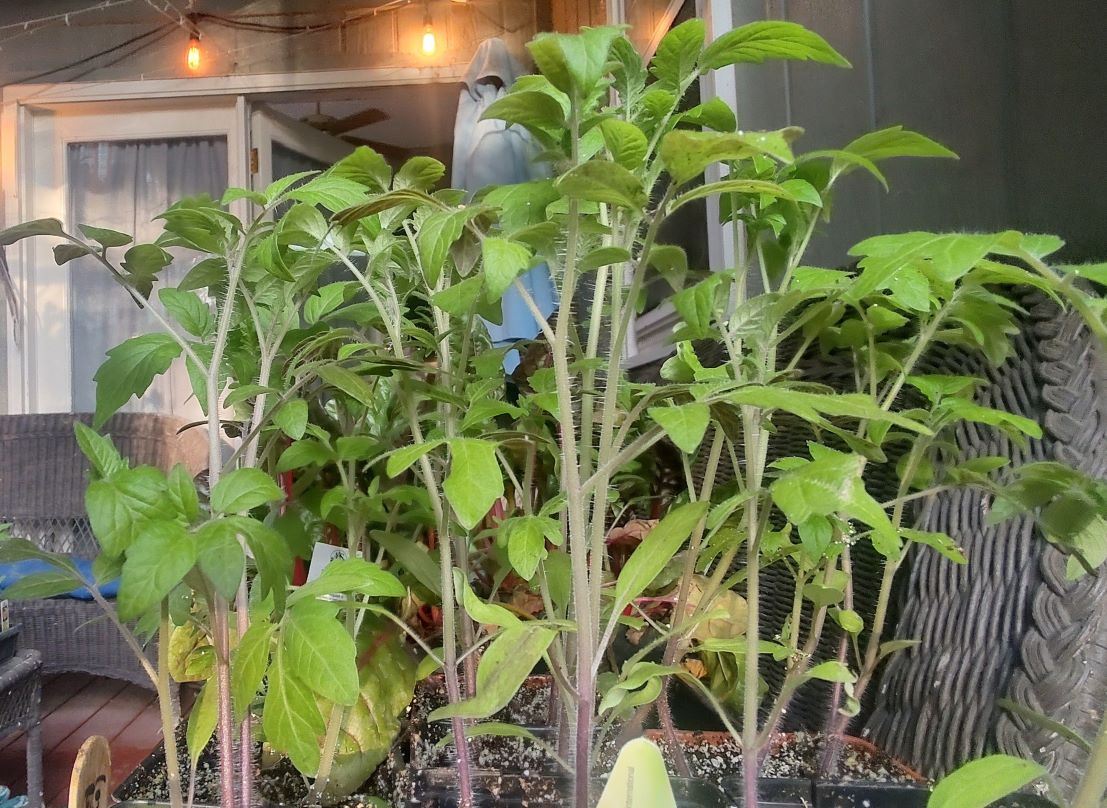Mitigating Transplant Shock
Return to Fruit and Vegetable articles.
 With the vegetable garden season roaring to a start and unpredictable spring weather simultaneously parking in place, many inquiries we have received at the Johnson County Extension office recently have pertained to seed starts dying once they have been moved from indoors to outdoors. People have put in the work –buying the supplies, sowing seeds, and nurturing their seedlings to planting size in a warm outlet of their home. However, moving them outdoors, many have found their work to be for nothing as the plants rapidly decline.
With the vegetable garden season roaring to a start and unpredictable spring weather simultaneously parking in place, many inquiries we have received at the Johnson County Extension office recently have pertained to seed starts dying once they have been moved from indoors to outdoors. People have put in the work –buying the supplies, sowing seeds, and nurturing their seedlings to planting size in a warm outlet of their home. However, moving them outdoors, many have found their work to be for nothing as the plants rapidly decline.
“Hardening off,” as monikered, is gradually introducing seedlings and plants grown indoors to outdoor conditions. In the lifespan of these plants, they have likely only ever been exposed to abundant sunlight, warm air, non-moving air, and warm soil. Brought outdoors, they can often be introduced to the direct opposite, ultimately thrusting them into the arms of transplant shock. To prevent this, it’s recommended to gradually allow your plants to get acquainted with outdoor conditions to shift their “shock” to a mild discomfort.
Two weeks before your planned outdoor planting date, start the hardening-off process. This involves taking your transplants outdoors and exposing them to their new environment in small doses. Begin with just one hour in a protected area, gradually increasing the exposure time over the course of several days. This gradual approach allows the plants to acclimatize without experiencing shock or potential death.
Remember, accumulating stressors can often spell their demise when it comes to plants. Frequently, when I discuss tree pruning with people, I tell them that no more than 30% of live growth is removed at once. I do this because every pruning cut is one more “stressor” adding to a sum as a whole. When planting transplants, roots are likely to be disturbed or broken. Stems may be bent. Leaves may be shed. Adding a harsh, never-experienced environment to that list can ultimately prove to be too much, making hardening off so important.
Whether you're starting a vegetable garden or tending to non-vegetable plants like houseplants or flower gardens, the benefits of hardening off are universal. As much as I have anthropomorphized here, the science supports this. Efforts are made; plants will begin building up their carbohydrate reserves. Ultimately, this will give them more food to survive stressful situations. Their cell walls will thicken exposed to wind, giving them a sturdier permanence. Exposed to minor drought, roots will expand outward and lengthen, reaching for their water source. This knowledge empowers you to ensure the health and resilience of all your plants.
Anthony Reardon, Horticulture and Small Farms Agent, 2024
Do You Have Questions?
The Garden Hotline is staffed by trained EMG volunteers and Extension staff who will assist you with questions.
Phone: (913) 715-7050
Email: garden.help@jocogov.org